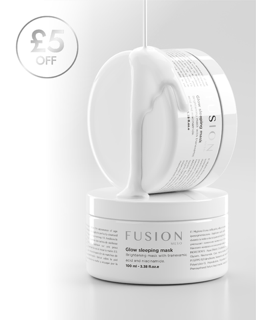Some of the best skincare ingredients to look for
- marielarkin15
- May 5, 2022
- 3 min read
Updated: Feb 29, 2024
We all have to grow older; it's part of life. And ageing skin is not a bad thing, but having skin that ages in a healthy way is a goal worth going after.
1. SPF
It's no surprise this skin care essential made it to the list of must-haves for healthy ageing. And even with the vast amount of knowledge and studies that prove how important sun protection is, so many of us neglect to use it daily. If you didn't know, although the sun gives us a healthy dose of vitamin D, exposure to ultraviolet rays can be harmful. And the dangers of unprotected sun exposure don't vary by race or age. Bottom line: We all need to wear SPF every single day.
Skin cancer is not the only possible consequence of neglecting sun protection. It wreaks havoc on our skin, too. Sunscreen is one of the first and most important steps to take in an anti-ageing routine, and you are never too young or too old to start. UV exposure can lead to signs of skin ageing including dark spots/pigmentation and a breakdown in collagen, which leads to fine lines and wrinkles.
2. Antioxidants
Antioxidants help to neutralise free radicals from oxidative stress, inflammatory processes, and UV rays. Neutralising free radicals with antioxidants improves the prevention of photodamage.
Vitamin C is a great antioxidant since it helps build collagen in the skin, stabilizss the collagen you already have, and treats and prevents hyperpigmentation.
A few other topical antioxidants to consider are niacinimide and vitamin E.
But it's also vital to ingest antioxidants, as it can help deal with oxidative stress internally. There are many oral antioxidant supplement options out there. Look for ingredients such as astaxanthin, ubiquinol CoQ10, and pomegranate whole food extract.
3. Retinoids and bakuchiol
Many experts agreed, retinoids can play a very important role in healthy ageing. If you're unaware, retinoids are vitamin A derivatives and studies show that they play a significant part in a slew of topical skincare improvements including reducing lines and wrinkles and the appearance of dark spots/pigmntation. Retinoids increase cellular turnover to exfoliate clogged pores and reduce the appearance of fine lines and are fabulous treatments for acne.
If you're looking for a natural alternative to retinoids, look at the plant extract bakuchiol. A recent study shows that this natural option is known to have similar anti-ageing effects as retinol and is even less irritating.
4. Peptides
If you find that your skin is losing its firmness, reach for peptides. Peptides are small-chain amino acids that help build collagen, elastin, and keratin, which can lead to firmer and smoother skin.
5. AHAs
Both AHAs and BHAs are considered to be topical exfoliants by chemically breaking down and sloughing off dead skin cells, dirt, debris, and excess oils. While exfoliating the skin, AHAs and BHAs help to promote the growth of new cells, allow for better product absorption, and restore hydration.
AHAs, however, might be more beneficial for mature skin, rather than BHAs, which tend to be better for younger, acne-prone skin.
6. Hyaluronic acid
Hyaluronic acid is like gold when it comes to hydration. It's a naturally occurring sugar that holds water to collagen. Not to mention it can hold up to a thousand times its weight in water and locks it in. HA gives dehydrated skin a burst of moisture, and it helps to plump skin and fill fine lines.
As with collagen, the amount of naturally occurring HA in our bodies decreases as we age. So applying it as a topical product or ingesting it orally via supplement helps skin look hydrated and plump.
7. Lecithin
Lecithin is a phospholipid, which are generally extracted from sunflower or soy (or egg yolks) as lecithin, but are also found in olive and hazelnut oils. Why is this ingredient so amazing? Its head is attracted to water while its tail repels it, meaning it makes a great moisturiser since it actively works with the skin, which also has water-loving and water-hating parts. The similarity in structure means lecithin helps moisturising ingredients penetrate further into the skin.
Lecithin can improve and protect cells and membrane damage from free radicals, which are thought to be one of the main causes of ageing.
8. Olive squalane
Olive squalane is sometimes also referred to as nature's face-lift since it's found in your skin's natural oils and is easily synthesised by your body. It's an excellent moisturiser and feels much lighter than most other cosmetic oils. Squalane functions as an antioxidant, prevents UV damage and promotes cell growth



Comments